Jarno Habicht, WHO Ukraine: Ukrainian nation is getting older as many young people left
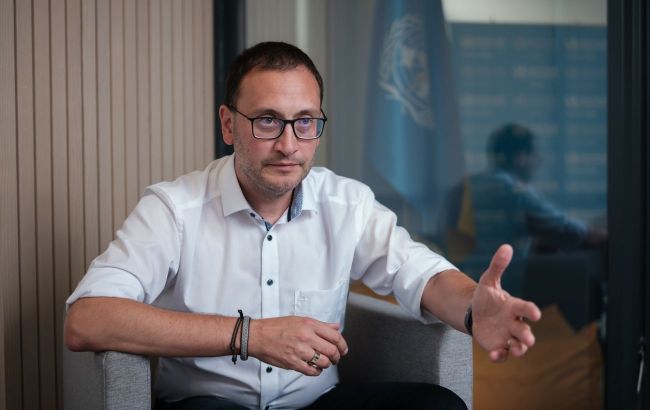 Jarno Habicht, WHO representative in Ukraine (Vitalii Nosach, RBC-Ukraine)
Jarno Habicht, WHO representative in Ukraine (Vitalii Nosach, RBC-Ukraine)
Russia continues missile strikes on Ukraine, specifically on hospitals. The entire country was shaken by the news of the shelling of Okhmatdyt in Kyiv, while polyclinics, mobile medical points, and pharmacies across the nation face ongoing attacks.
The World Health Organization (WHO) in Ukraine continually documents such incidents and helps to rebuild medical infrastructure in the most affected areas during the war.
In an interview with RBC-Ukraine, WHO representative in Ukraine Jarno Habicht discussed the condition of hospitals amidst the shelling, the accessibility of medications for Ukrainians, and the preparation of medical infrastructure for possible prolonged power outages in winter.
- Russia has once again committed an act of terrorism by shelling the children's hospital Okhmatdyt. What is the reaction of WHO and global organizations to this outrageous incident?
- What happened at Okhmatdyt shocked Ukrainians. I feel it deeply when talking to colleagues in the office and friends in Ukraine. I believe every family has someone - children who have been treated there or know someone who has been. Therefore, this hospital is a kind of symbol, and the shelling of Okhmatdyt evokes many emotions.
However, we must not forget that many other healthcare facilities were attacked that day as well. This is happening all over Ukraine. The attack on Okhmatdyt in some sense brought the war back to Kyiv, as shelling occurs constantly in Kharkiv, Kherson, or Zaporizhzhia, though the intensity varies. In the village of Lyptsi, Kharkiv region, WHO previously established a modular primary healthcare point, which was also attacked and now no longer exists.
On one hand, there are many emotions. On the other, there is the need to document such cases. To date, we have tracked and documented 1888 attacks on healthcare infrastructure in Ukraine.
Our role as the World Health Organization is to monitor, verify, and report these incidents. Without this documentation function, many attacks on healthcare infrastructure would go unnoticed. So, among other things, our role and duty are to show when there are attacks specifically on the healthcare system.
I think we will reflect on many thoughts and emotions after the war. For now, our role is to ensure monitoring, verification, and reporting on attacks on the healthcare system. It is crucial to understand that all these shellings deprive people of access to medical care. Many healthcare workers are also at risk. We have already lost many, including a young colleague at Okhmatdyt. The shelling of Okhmatdyt is another grim reminder that the attacks continue.
Comparing the situation after February 24, 2022, when the full-scale invasion of the Russian Federation began, there were significantly more shellings in the first year. But in 2024, we are seeing many more double attacks. Now we have more shellings of civilian infrastructure than before. We are losing colleagues – healthcare workers – nurses, doctors, paramedics. In 2024, many more healthcare workers have also been injured.
So, there are emotions, but we are analyzing and condemning this much more. What is happening contradicts international humanitarian law and should also go against human nature. But unfortunately, this is what war brings to our homes.
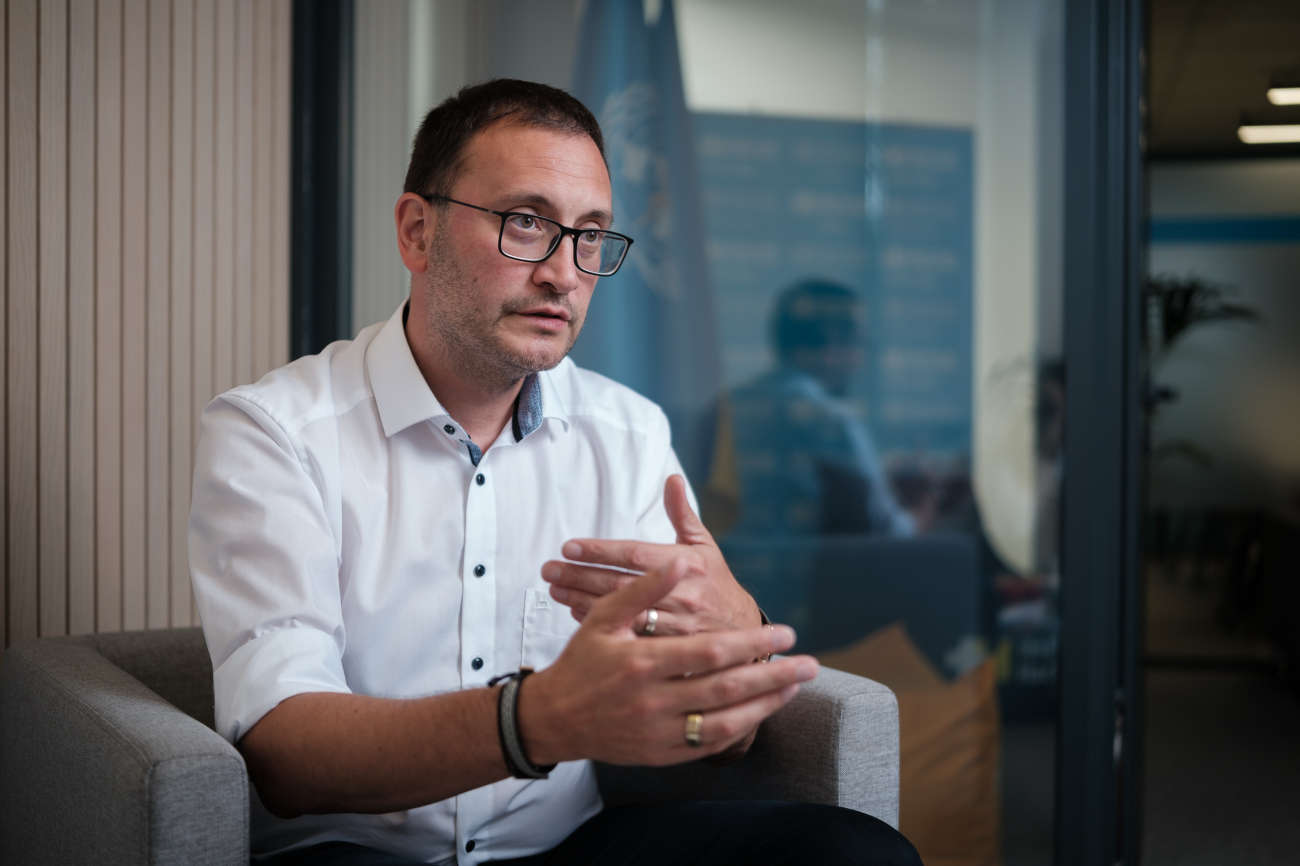
Photo: WHO has tracked and documented 1888 attacks on healthcare infrastructure in Ukraine (Vitalii Nosach/RBC-Ukraine)
– How many healthcare facilities in Ukraine have been affected by the full-scale war?
– We published a report with data collected from November 2022 to May 2023. The most partially damaged healthcare facilities are in Kharkiv region – 134 (21%), Chernihiv – 102 (33%), Donetsk – 102 (37%), and Kherson – 42 (48%). There are also figures for total damage to facilities: Kharkiv region – 39 (6%) facilities, Kherson – 8 (9%), and Donetsk – 43 (16%).
– What problems do people face with access to treatment, examinations, and medications? Which regions are the most affected?
– There is no exact figure for how many people are not receiving help. The data varies across many regions. There are far more healthcare facilities damaged or unable to provide services in Kharkiv, Kherson, and Donetsk regions. In some parts of Ukraine, up to 70% of facilities cannot provide certain diagnostics or medical support, mainly in the east and south of Ukraine.
In the early months of the invasion, we saw that about a third of people in the country had problems accessing medications due to closed pharmacies. Thus, access to both medical services and medications worsened. People also felt unsafe when seeking medical help. Now people feel safer, but attacks on healthcare still significantly impact the situation.
It is very encouraging that the Ukrainian healthcare system continues to function and, despite everything, responds quickly to needs and challenges. Where there are significant needs, such as in frontline areas, humanitarian organizations also contribute to assisting. This improves access to medical care.
The high cost of medications also affects access to treatment. Four out of five people and households report that they do not have access to all the medications they need due to high prices. Thus, access to medicine is impacted not only by shelling: the state of the economy has worsened, and there are fewer jobs and lower wages. The war affects everyone and health across Ukraine in various ways.
– What can be done now to at least partially reduce these risks and problems?
– We need to work diligently every day. The war is ongoing; it essentially began in 2014, not two and a half years ago. Such challenges require constant response, and needs change rapidly.
At the start of the war, people needed more medications. With the onset of attacks on energy infrastructure in October 2022, everyone needed generators. Medical institutions are being rebuilt where possible. In the Kyiv region, hospital buildings are being quickly restored. One primary care clinic I visited was almost destroyed, but it has now been fully restored. One solution for frontline areas is modular primary care clinics that we are setting up to provide help to people.
In Ukraine, mobile pharmacies have also started operating at the initiative of the Ministry of Health, which is a very good idea because many pharmacies in rural areas have closed due to the war. Ukrainians are responding to challenges, and the healthcare system is adapting. Ukrainians are inventive in finding ways to overcome various problems. But even if medications are available, not everyone can afford them due to financial issues, especially elderly people with chronic illnesses.
WHO, along with many partners, provides medications that primary care doctors distribute to patients, but this is a temporary solution, usually in response to humanitarian needs. We must also consider how recovery will proceed to ensure necessary services in the future.
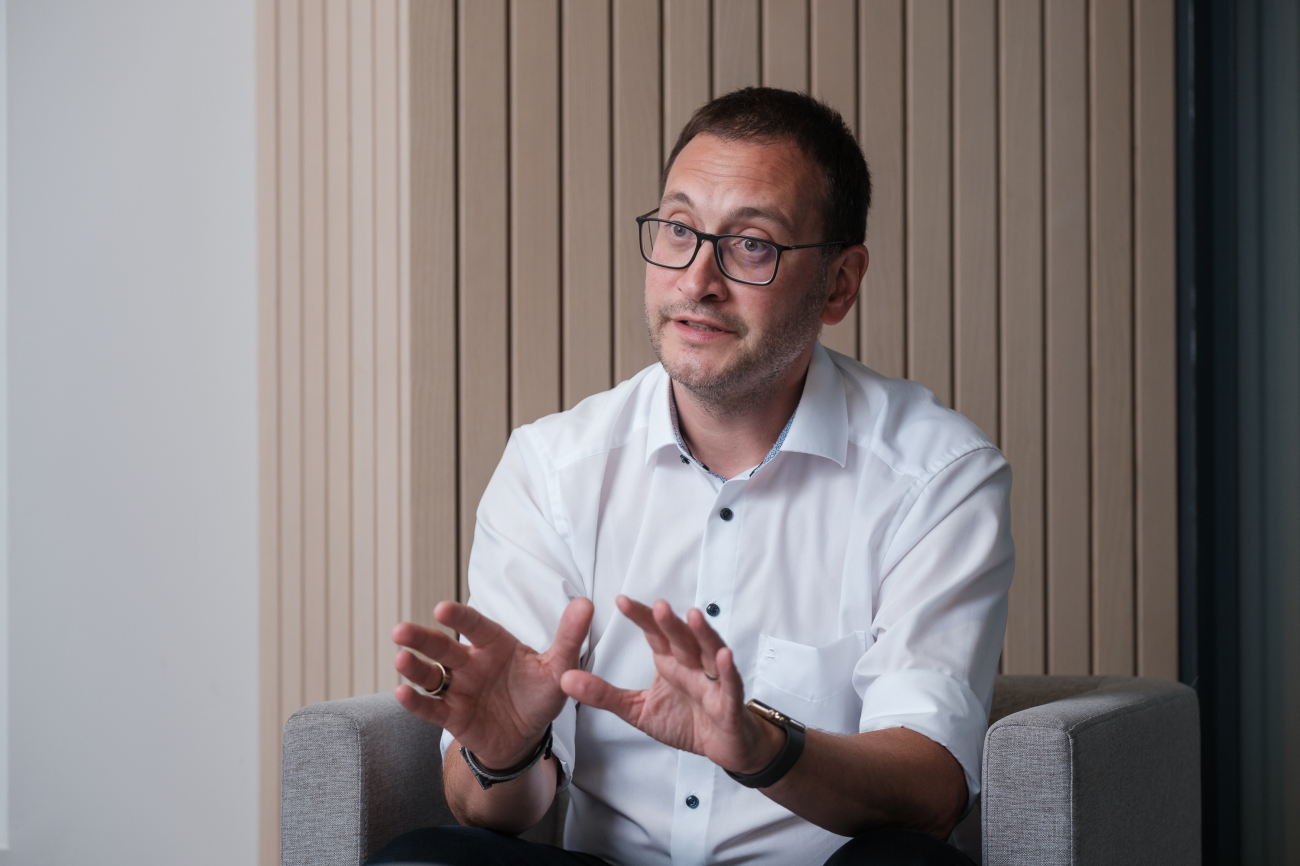
Photo: In Ukraine, despite the war, the medical system is functioning and responding to challenges, - Jarno Habicht (Vitalii Nosach/RBC-Ukraine)
– What are the most pressing medical issues in Ukraine during the war that need to be addressed?
– I think we need to prioritize improving access to medical services. We regularly conduct studies on medical needs in Ukraine, and our observations show that overall access to services is improving, but many barriers remain. For example, prices. Therefore, we need to know which medications are available and which are more affordable, especially for patients with chronic diseases such as hypertension and diabetes, where lifelong treatment is required after diagnosis.
We also see that the Ukrainian population is aging due to demographic changes, as many young people have left the country. It is essential to ensure that elderly people have access to medical services.
There are many opportunities to adapt the system, but the transformation that began in Ukraine in 2016-2017 is very important. Medical reform creates new pathways for financing the system and supports the establishment of institutions for medical procurement. It is crucial that the implementation of the reform continues, and any partners supporting Ukraine need to consider national interests and the reform. Assistance must align with Ukraine's vision.
– What are the main issues you see in the national medical system during the war?
– I often compare Ukraine to Estonia, my home country. In Ukraine, one region can be the size of all of Estonia. Ukraine is a large country, and medical issues vary by region. Priorities include adequate healthcare sector funding and primary medical care.
There are many internally displaced persons within the country: over 6 million people have left Ukraine. A key issue now is ensuring a sufficient number of healthcare workers, especially in the Kharkiv, Donetsk, and Zaporizhzhia regions.
Healthcare workers have been through very tough times. Previously, it was the COVID-19 pandemic, and now it's the war. They need to have good working conditions. There are significant needs in mental health and rehabilitation. We need to recruit and train new healthcare workers.
Together with partners, we have supported over 70,000 primary healthcare workers who have undergone training in the mhGAP (Mental Health Gap Action Programme – WHO's flagship program to increase access to mental health services by involving therapists and other doctors). Therefore, as they say, we need to build the ship while sailing.
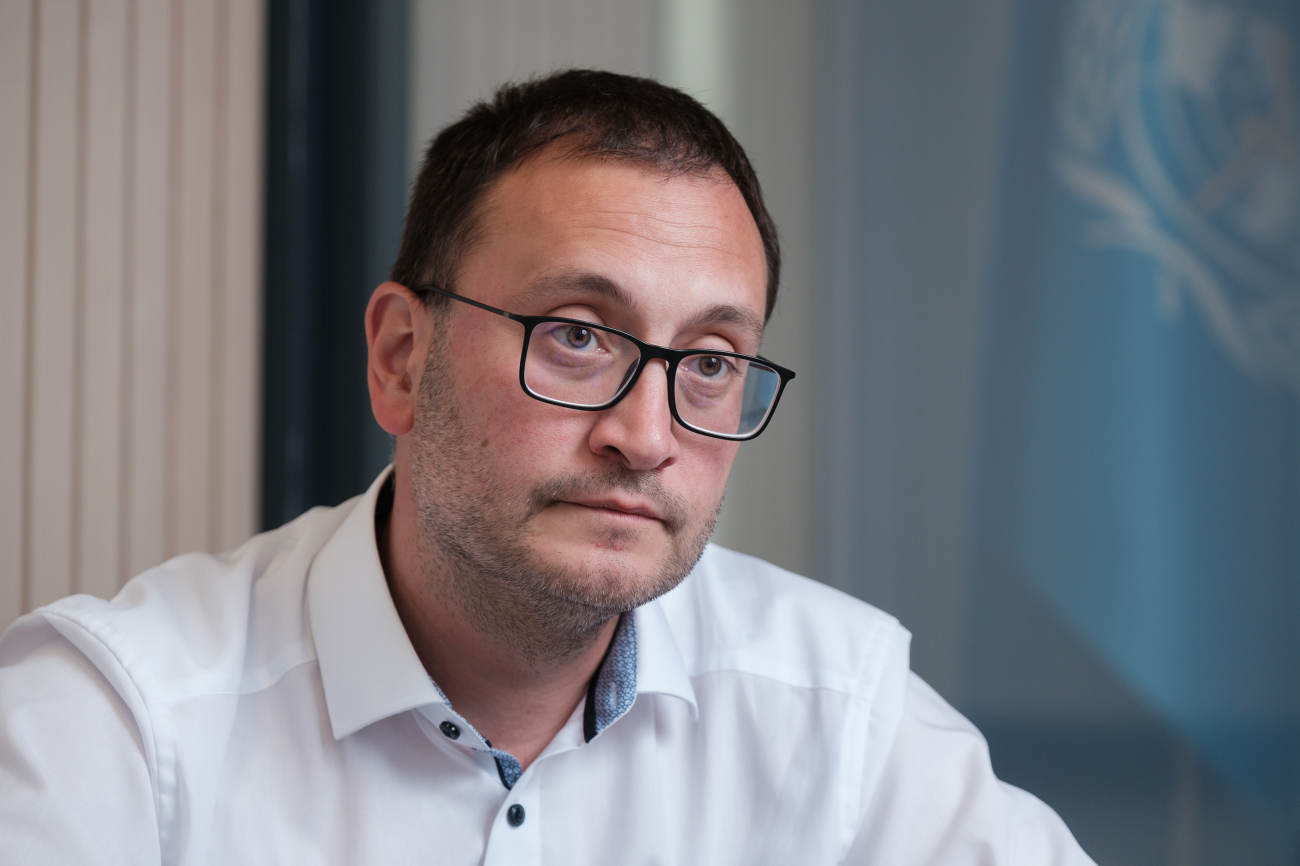
Photo: Priorities include sufficient funding for the healthcare sector and primary healthcare during the war (Vitalii Nosach/RBC-Ukraine)
– It's also important to say that during the war, Ukraine is striving to join the European Union. This requires changes in the healthcare sector as well. The way we exchange health information and data must align with EU practices. There need to be similar management approaches.
Such changes make Ukraine healthier. One example is WHO's global effort to eliminate trans fats from food production. If things go in the right direction, the food we buy will become healthier for Ukrainians as well.
– You recently released a study showing that about one-third of processed Ukrainian food products contain excessive trans fat levels. Can you elaborate on this?
– There is a global goal to eliminate trans fatty acids from the food chain because they are harmful to health. They can cause a range of diseases, including cancer, and are as harmful as tobacco. Globally, countries, including the EU, have agreed that this needs to be addressed. Ukraine is also moving in this direction.
The WHO study results showed that out of 120 product samples, 37 had excessively high levels of trans fatty acids. Now we need to provide feedback to food manufacturers.
When we eat, typically three times a day, we don't always know what exactly we are consuming. But we all want to eat healthy foods, even though it's sometimes difficult to control individually.
For instance, we need to eat five servings of fruits and vegetables daily. This is easy to understand because one fruit is something that fits in one hand. And if you have fruits and vegetables of five different colors, it's easy to remember. However, controlling the use of trans fats is difficult, as it requires a consolidated effort. So, if we want to be part of the European Union, such products should not be on our market.
We have already held initial meetings with producers in Ukraine on this issue. I believe many will be open to change in the future. The question will arise: do you want to be present in European markets? I think many producers will define their values.
– What health problems can arise during power outages in summer? Specifically, infectious diseases? And what about people with chronic diseases who need to store their medications in refrigerators?
– Since October 2022, we have seen massive attacks on civilian infrastructure, and since March 24, on power supply facilities, heating stations, and other infrastructure. Many of us have electricity for only 2-4 hours a day. This affects us in many different ways. In winter, the short daylight increases the risk of falls and injuries. Also, medications and food often need to be stored under certain conditions, in refrigerators.

Photo: During summer power outages, one should take special care of health, drink plenty of water, and wash vegetables, - WHO representative in Ukraine (Vitalii Nosach/RBC-Ukraine)
– When attacks on heating and power stations occur, it leads to problems with water supply. It's not just about having hot water, it's about having water at all. While I might still have water, many of my colleagues experience complete water shortages during power outages.
Without water, there is no way to wash fruits and vegetables or maintain hygiene, which increases the risk of infectious diseases. Therefore, attacks on civilian infrastructure are utterly unacceptable because they bring the war into everyone’s home once again. The lack of electricity, heating, and water affects every aspect of our lives, from washing our hands to ensuring our medications are stored at the right temperature.
– If there is no power, what should people do to minimize health risks? What is important to remember about storing food and medications?
– Even in the toughest times, we must not forget about hygiene rules. Amid the war, we also need to remember to take care of our health. We have learned a lot about the importance of handwashing since the COVID-19 pandemic, and we need to keep that in mind now. Handwashing, washing fruits and vegetables, and everything we eat should be done regularly. Additionally, we need to find ways to maintain the necessary temperature for medications.
Besides preparing for the next winter, we should also remember the specifics of summer. During heatwaves, we need to protect ourselves, especially the elderly and those with chronic diseases. It's essential to drink enough water, stay in the shade, and monitor overall health.
– What is the current situation with preparing Ukrainian hospitals for winter if the power outages are prolonged?
– The situation varies by region. We are working with the Ministry of Health and regional leaders, specifically on installing modular boilers in hospitals. This is crucial because winter is just six months away, and such projects for hospitals take about six months to implement. So, if someone isn’t prepared yet, now is the time to start getting ready.
The WHO team recently installed several of these boilers in the Kharkiv and Chernihiv regions, and next in line are the Odesa region and others. This will help ensure hospital autonomy and heating availability.
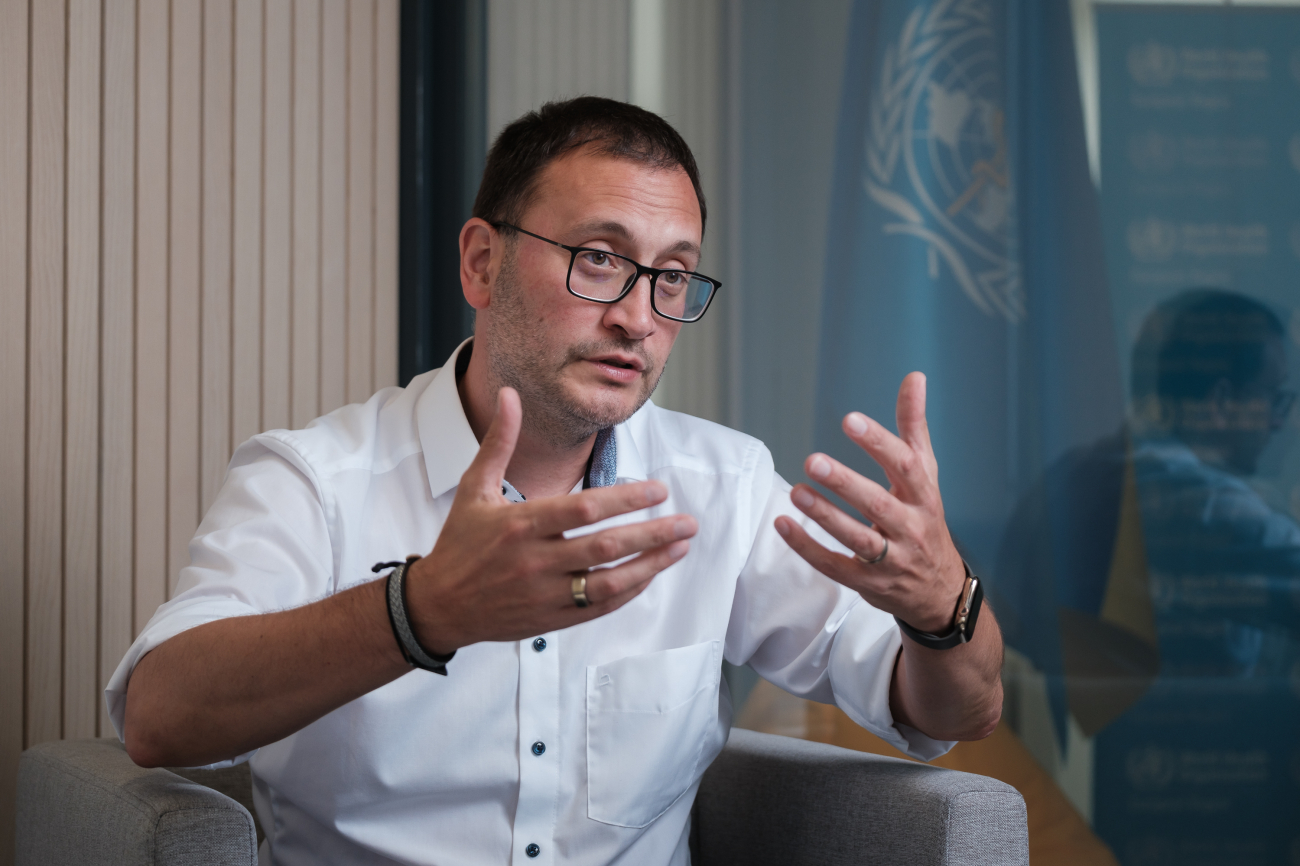
Photo: Jarno Habicht: People with chronic diseases need to take care of the temperature regime for storing medicines (Vitalii Nosach/RBC-Ukraine)
– But I also urge people to take care of their own homes. Think about stocking up on water and food, and whether you will have heating. Consider what needs to be done to ensure it. This preparation is especially important for families with children.
– Has Ukraine managed to restructure its healthcare system to respond to the challenges of war?
– The most important thing is that the healthcare system continues to function and provide accessible primary healthcare. It managed to keep hospitals running. This was due to the truly heroic work of healthcare workers. From the WHO side, we work to provide help and support. Additionally, thousands of healthcare workers in the country continue to help people access medical services.
Secondly, during the war, Ukraine has gone through and continues to adapt to new challenges. I would particularly emphasize the resilience of Ukrainians and the healthcare system as a whole. Ukrainians and the state leadership have also initiated an honest discussion about mental health.
In Ukraine, they didn’t wait for the war to end but started addressing these challenges right now. And now, many mental health projects are operating in Ukraine. This direction is coordinated together with First Lady Olena Zelenska.
Regarding mental health assistance, we are still not reaching everyone who needs it, but the work is ongoing. Compared to the situation two years ago, now over 70,000 primary care workers have undergone appropriate training.
There are already centers in Ukraine working with spinal cord injuries. The field of prosthetics is developing for those who have survived amputations. I have seen large rehabilitation centers in Dnipro, Zaporizhzhia, and Poltava. And there will be more of them. It is necessary to continue developing and adapting services for those who need them.
The important thing is that Ukraine did not wait and started taking these steps immediately. From the WHO side, we continue to respond to humanitarian needs, work on the restoration of the healthcare system, and simultaneously promote the reform program.

